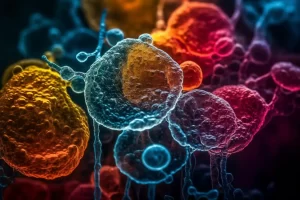Does Ibogaine work for Parkinson’s Disease?
Ibogaine has been used for years in the treatment of Substance Use Disorders, which are often associated with drugs that directly or indirectly increase dopamine. It appears ibogaine can provide a ‘resetting’ effect to mesocortical dopamine circuits affected by addiction. However, ibogaine also modulates dopamine neurocircuits in the striatum that are lost in persons with Parkinson’s disease. The discovery of ibogaine being able to promote increases in neurotrophic factors such as GDNF (glial cell line-derived neurotrophic factor), has sparked interest in its potential as a treatment in Parkinson’s disease. Though ibogaine has not yet been scientifically tested to treat Parkinson’s, various personal stories have come out about the potential benefits of ibogaine treatment.***
Background of Parkinson’s Disease
Parkinson’s disease is a chronic and progressive neurodegenerative disorder that affects motor control and is caused by the loss of dopamine neurons located in the substantia nigra, as well as the deterioration of the central and peripheral nervous system. The main symptoms are related to motor control and include tremors, difficulty with speech, slow movement, rigidity, and postural instability.
Parkinson’s affects about 1% of the population over 60 years old, with men being affected more commonly than women. Parkinson’s diagnosis increases with age and only 4% of all cases are in people under the age of 50. Parkinson’s disease is the second most common neurodegenerative disorder after Alzheimer’s. Parkinson’s symptoms cause physical discomfort and motor problems first and with a gradual increase to emotional and cognitive deficits. Depression is extremely common in persons with Parkinson’s and the illness can also lead to dementia.
There is no cure for Parkinson’s, but there are treatments to help manage symptoms like levodopa/carbidopa or dopamine agonists (like ropinirole), which work by stimulating dopamine receptors in the brain. These drugs can have side effects, including hallucinations and dyskinesia, and are not always successful at alleviating symptoms or preventing disease progression. Parkinson’s patients have few palliative care options and poor quality of life is often expected for those in the late stages of their terminal diagnosis.
Parkinson’s Disease and Neurotrophic Factors
A few lines of research have investigated the potential of increasing neurotrophic factors like GDNF in the treatment of Parkinson’s disease. GDNF and other neurotrophic factors stimulate the growth of dopaminergic fibers in the brain. There is evidence that GDNF improves the survival of dopaminergic neurons, which in turn could improve symptoms of Parkinson’s.
Unfortunately, research with neurotrophic factors and Parkinson’s is limited. The delivery of trophic factors such as GDNF directly into the brain has some issues. They cannot cross the blood-brain barrier so cannot be administered by mouth. Administration by injection is invasive and carries risks of missing the target tissues. Therefore, it may be a preferable strategy to use medications, such as ibogaine, that can release GDNF via oral administration.
Ibogaine and Neurotrophic Factors
Ibogaine’s mechanism of action is not fully understood. However, ibogaine and its metabolite noribogaine increase levels of neurotrophic factors such as GDNF (glial cell line-derived neurotrophic factor), which helps neurons survive by protecting them from damage and death. Evidence suggests that ibogaine modulates GDNF in areas of the brain affected by Parkinson’s disease, namely nigrostriatal dopamine circuits. Ibogaine may have neuroprotective qualities that could promote the survival or even regeneration of motor and dopaminergic neurons lost in Parkinson’s. Ibogaine is also theorized to modulate and regulate other neurotrophic factors such as BDNF and NGF. The discovery that ibogaine can collectively increase and modulate several neurotrophic factors is an exciting subject for future studies on its relationship to neurodegenerative diseases.
Ibogaine and Parkinson’s
Anecdotally, there are stories weaved through the ibogaine treatment world that ibogaine has reported the improvement of symptoms in those with Parkinson’s disease as well as other neurologic illnesses such as traumatic brain injuries, peripheral neuropathy, and fibromyalgia. Theoretically, ibogaine in a low, repeated structured dosing may stimulate and increase GDNF, eliminating the side effects of medications or the difficulty of replicating brain infusions, as other studies have done. A low dose regimen may also decrease some of the risks, and unpleasant side-effects that come with ibogaine treatment, although this also needs further study to confirm safety and benefits.
Some studies suggest that ibogaine signals between neurotrophins, dopamine, and sigma receptors. There are also theories that a misbalance of signaling between neurotrophins and dopamine sites might be related to Parkinson’s or other neurodegenerative diseases. Ibogaine should be further studied for its ability to help address these neurological issues.
Conclusion:
Ibogaine has mechanisms of action along with anecdotal reports that suggest potential benefits in Parkinson’s disease. However, more research needs to be done before it can be recommended as an option for treating symptoms of Parkinson’s Disease.
